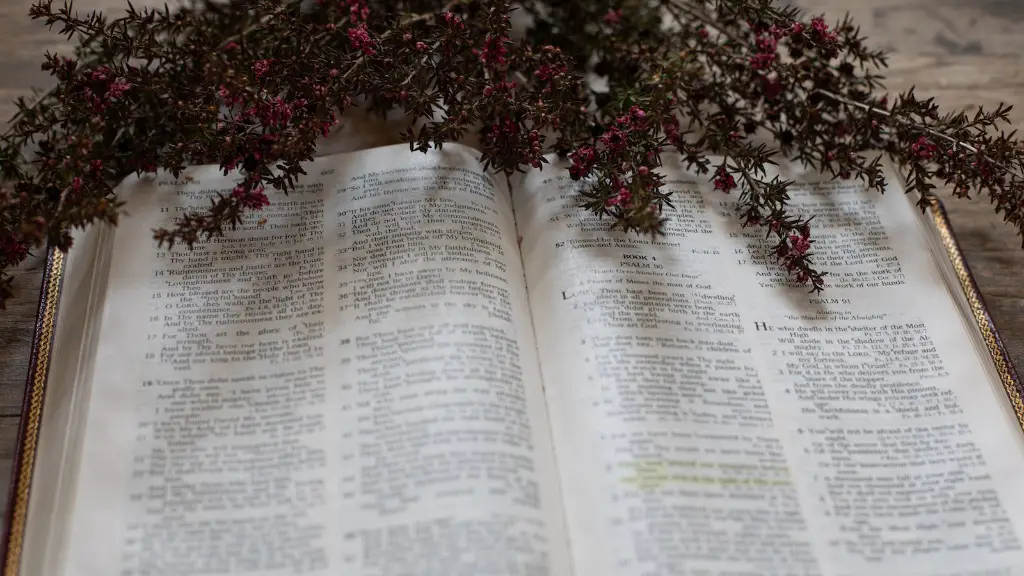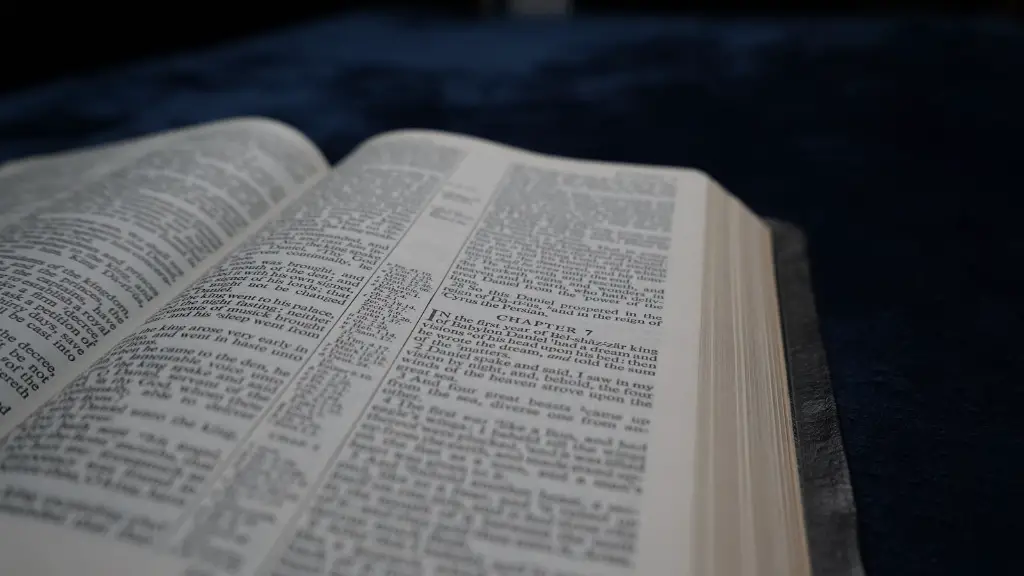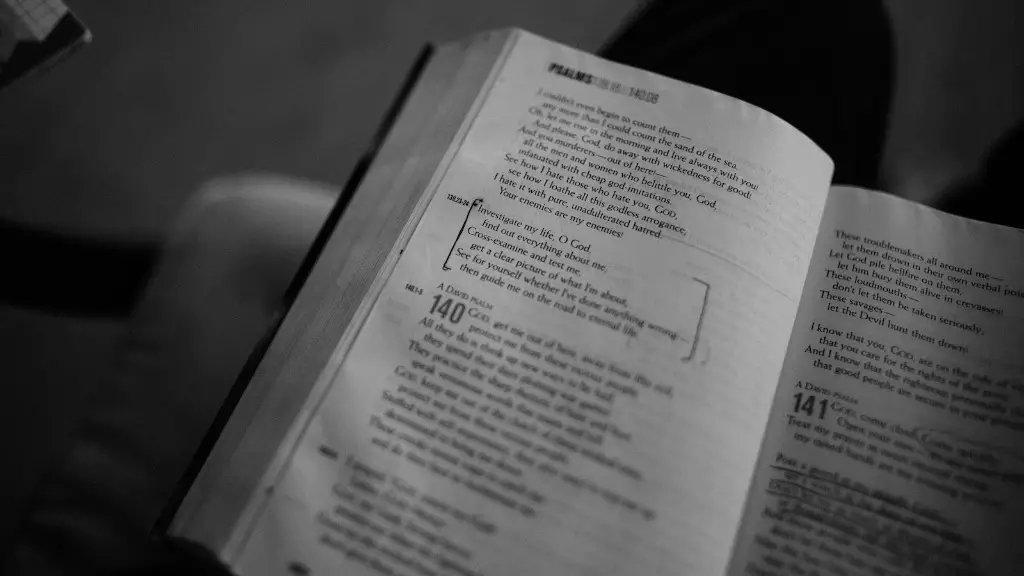A stockpile is a supply or reserve of something, typically food, that is kept for emergencies or difficult times. Though the Bible does not explicitly say anything about stockpiling food, it does have a lot to say about giving to those in need and being prepared for tough times. For example, in Matthew 6:19-21, Jesus says, “Do not lay up for yourselves treasures on earth, where moth and rust destroy and where thieves break in and steal, but lay up for yourselves treasures in heaven, where neither moth nor rust destroys and where thieves do not break in and steal. For where your treasure is, there your heart will be also.” This verse teaches us that we should not put our hope in earthly possessions, but rather in God. And in Proverbs 21:20, we are reminded that “In the house of the wise are stores of choice food and oil, but a foolish man devours all he has.” This verse teaches us the importance of being wise with our resources and not being wasteful. So, while the Bible doesn’t explicitly tell us to stockpile food, it does remind us to be good stewards of our resources and to help those in need.
There is no specific mention of stockpiling food in the Bible, but there are a few principles that could be applied to the issue. For example, in the book of Proverbs, it says that “a person’s steps are directed by the Lord. How then can anyone understand their own way?” (Proverbs 20:24). This suggests that we should trust God to provide for our needs, even if that means we don’t have a lot of extra food stored up. Additionally, the parable of the talents in Matthew 25 teaches that we should be good stewards of what God has given us, including our resources. This means using what we have to bless others and being wise with how we use our food.
What does the Bible say about hoarding food?
Hoarding grain is seen as a bad thing because it can lead to people being unable to afford food. However, those who are willing to sell their grain are seen as being more generous and are therefore blessed by God.
The Bible has a lot to say about food and provision. In Proverbs 21:20, we see that the wise store up choice food and olive oil, but fools gulp theirs down. This is a principle that we can apply to our lives today. If we are wise, we will not only provide for our own needs, but we will also have a reserve for times of need. This is especially important for those of us who have families. In 1 Timothy 5:8, we see that if anyone does not provide for his relatives, and especially for his immediate family, he has denied the faith and is worse than an unbeliever. This is a strong statement that should cause us to think about our priorities. Are we more concerned with our own comfort and convenience, or are we truly concerned about the welfare of our family members? If we are not providing for our families, we are not living up to our responsibilities.
Where does it say in the Bible not to store food
Don’t worry about your life, what you will eat or drink, or about your body, what you will wear. Life is more than food, and the body is more than clothes. Look at the birds of the air; they don’t sow or reap or store away in barns, and yet your heavenly Father feeds them.
The Federal Emergency Management Agency (FEMA) recommends that every American have at least a three-day supply of food and water stored in their home. FEMA also recommends that each person have at least one gallon of water per day. If you have the space, experts recommend a week’s supply of food and water. Choose foods that don’t require refrigeration and are not high in salt.
Is hoarding a form of greed?
Greed is often cited as the main motivator for people to hoard goods. Many people start collecting goods in abundance, regardless of whether they need them or not. This means that greed among people can cause hoarding, which can ultimately lead to psychological disorders.
Bulimia nervosa is an eating disorder that is characterized by periods of binging and purging. Binge eating is defined as eating large quantities of food in a short period of time, often in secret. Purging is typically done in an attempt to rid the body of the calories consumed during the binge. Rumination disorder is another eating disorder that is characterized by regurgitating and rechewing food or spitting it out.
What have the prophets said about food storage?
The Lord has warned us that there will be famines in the last days, and the righteous will have listened to the prophets and stored up at least a year’s supply of survival food. This revelation to store food is just as essential to our temporal salvation today as boarding the ark was to the people in the days of Noah.
As Christians, we are called to live our lives differently than the rest of the world. We are not to store up treasures on earth, but rather in heaven. This is because the things of this world are temporary and will ultimately be destroyed, but the things of heaven will last forever. When we invest our time and resources in heavenly treasures, we are ultimately investing in something that will last and that will have eternal value.
What does the Bible say about storing grain
Then he said, ‘I will do this: I will pull down my barns and build larger ones, and there I will store all my grain and my goods. And I will say to my soul, Soul, you have ample goods laid up for many years; relax, eat, drink, be merry.’
The only dietary restrictions specified for Christians in the New Testament are to “abstain from food sacrificed to idols, from blood, from meat of strangled animals” (Acts 15:29). These teachings were preached by early Church Fathers, such as Clement of Alexandria and Origen, for believers to follow.
What did Jesus say about eating meat?
There is no direct statement on the subject by Jesus in the New Testament. The story of Jesus feeding fish to people would support the view that Jesus may have been a pescatarian. Paul seems to have been more open to meat eating, but even Paul was open to vegetarianism.
Jesus is telling us not to worry about material provisions, but to trust in God to provide for us as he does for the birds. The birds are worth far less than we are, yet God provides for them fully. We can trust that God will provide for us in the same way.
Should we start stockpiling food 2022
If you want to protect yourself from shortages and inflation, you need to start prepping now.January is the time to start stocking up on supplies before the shelves are empty. By prepping now, you can ensure that you have what you need when the shortages hit.
The WFP has predicted that there will be a shortage of wheat and corn by 2023, which could trigger a new global recession. This is due to the increasing demand for these staple products, as well as the effects of climate change. The WFP is urging governments to take action now in order to avoid these shortages and their consequent effects.
Should we be preparing for a food shortage 2022?
A larger global food shortage is indeed coming and we need to be prepared. Shortages of certain food items are already being seen in grocery stores and this is likely to continue and even worsen by the end of summer. inflation of food prices is also expected. Therefore, it is important to start stockpiling non-perishable food items now and to be aware of what foods we may need to start rationing.
Hoarding disorder is a condition in which a person excessively saves and accumulates items, even if they are of no use and the person does not have enough space for them. This can be a reaction to a stressful life event that the person had difficulty coping with, such as the death of a loved one, divorce or losing possessions in a fire. Hoarding can cause great distress for the person and their loved ones, as well as being a fire hazard. If you or someone you know is struggling with hoarding, it is important to seek professional help.
What personality is a hoarder
Those most often associated with hoarding are obsessive-compulsive personality disorder (OCPD), obsessive-compulsive disorder (OCD), attention-deficit/hyperactivity disorder (ADHD), and depression. Hoarding is a condition where a person excessively saves items and is unable to get rid of them, even if they are of no use. This can cause significant distress and impairment in day-to-day functioning.People with OCPD tend to be perfectionists and have a need for control. They may also have difficulty with making decisions and may be excessively strict with themselves and others. OCD is characterized by intrusive and unwanted thoughts (obsessions) that lead to repetitive behaviours (compulsions). ADHD is a condition that is characterized by impulsivity, hyperactivity, and/or inattention. Depression is a condition that is characterized by low mood, fatigue, and difficulty concentrating.
Hoarding disorder is a serious mental health condition that can cause significant disruptions to one’s life. It’s important to seek professional help as soon as possible if you think you or someone you know might be suffering from hoarding disorder.
Warp Up
The Bible does not say specifically about stockpiling food, but it does have principles that can be applied to this situation. For example, the Bible teaches that we are to be good stewards of what God has given us (Genesis 1:28), and that includes our resources. Additionally, the Bible instructs us to be prepared and to have an emergency plan in place (Matthew 24:45, Luke 12:33-34). Therefore, if we are able to stockpile food and resources, we should do so, in order to be prepared for whatever may come our way.
Based on the verses that were looked at, it can be concluded that the Bible is in support of stockpiling food. This is because in times of need, it will be there to help those who are struggling. Additionally, it provides peace of mind and security in knowing that you have a backup plan.





